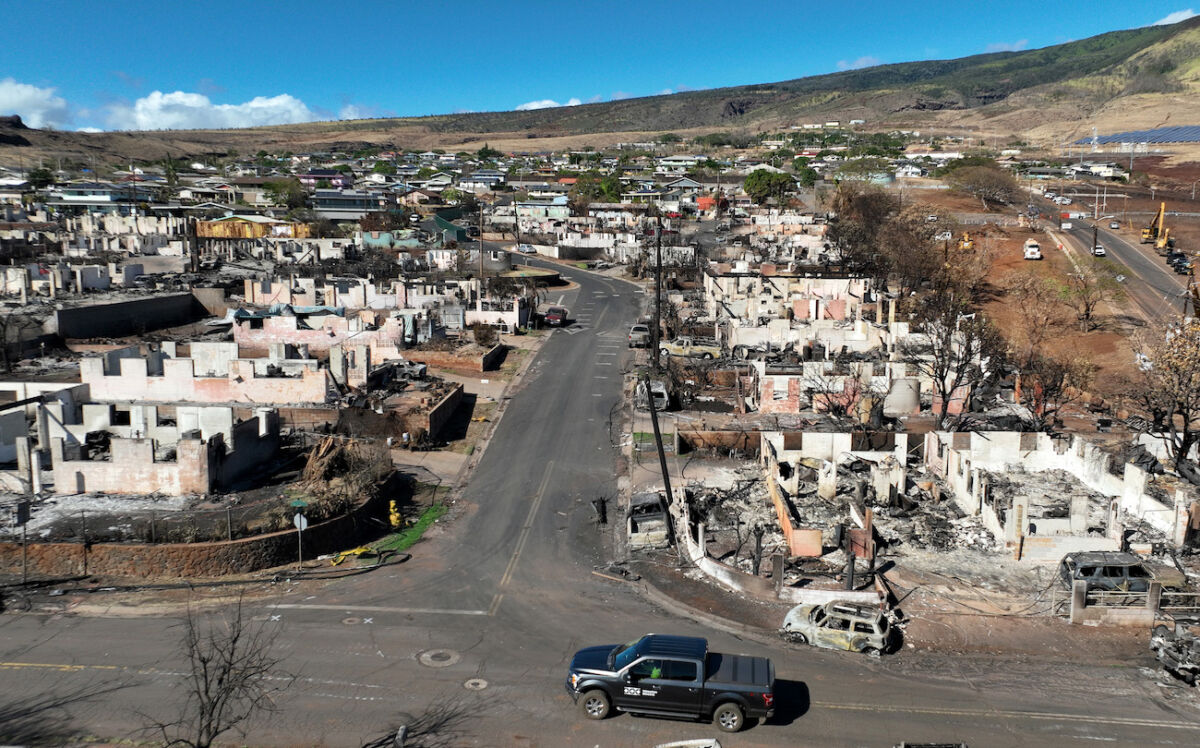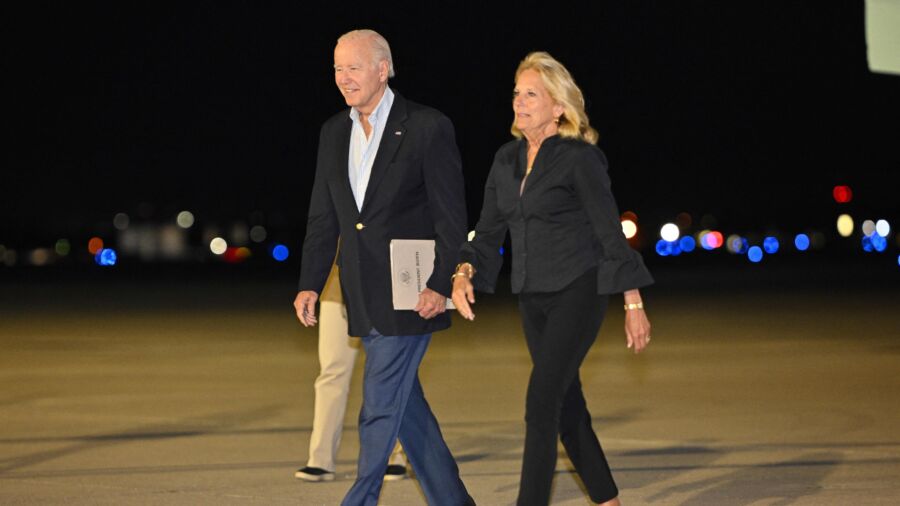President Joe Biden and First Lady Jill Biden are set to visit the Hawaiian island of Maui on Aug. 21 to survey the devastation caused by the fires that have claimed more than 100 lives and ravaged the historic resort town of Lahaina.
The fires, which have been described as the deadliest the United States has seen in more than a century, have raised questions about accountability and disaster response measures.
While the Biden administration has promised billions to help Hawaii rebuild, it hasn’t yet committed to a federal investigation into the causes of the disaster, despite growing calls for answers and accountability.
A small number of lawmakers from both parties have previously proposed creating an independent government body to investigate the underlying causes of disasters and recommend responses.
Rep. Katie Porter (D-Calif.), who authored a proposal aimed at establishing a “National Disaster Safety Board,” has expressed concerns about the lack of comprehensive reviews following disasters.
Ms. Porter told Politico that the Maui fires serve as “a tragic reminder” of the need for “the strongest possible leadership to review natural disasters.”
She asserted that a lack of such oversight “can dilute accountability and make it harder to take action” in the face of such events.
Ms. Porter’s bill was approved by the House in July 2022 but hasn’t advanced in the Senate. Sens. Brian Schatz (D-Hawaii) and Bill Cassidy (R-La.) have been leading the effort in the Senate. The legislation is expected to gain momentum this fall.
Climate Change?
Michael Shellenberger, an independent journalist and environmental activist, disputes the prevailing narrative that blames the fires primarily on climate change. He said on social media that underinvestment in fire prevention and decision-making influenced by renewable energy initiatives played significant roles in the tragedy.
“The media say climate change caused Hawaii’s devastating fire, but it didn’t,” he wrote on the social media platform X, formerly known as Twitter.
“The main causes were the under-investment in fire prevention and the refusal by the state to release water to firefighters. And those decisions were driven by unhinged ‘climatism’ and ‘Wokeism’.”
Hawaiian Electric, the utility company responsible for power distribution in the region, has come under scrutiny. Despite recognizing the need to mitigate power line-related fire risks in the aftermath of the 2019 wildfire season, the company’s efforts have fallen short, according to a recent report by The Wall Street Journal. Investment in wildfire-specific projects remained low, and necessary safety improvements were delayed.

Power Grid Malfunctions
Recent findings from Whisker Labs, a sensor technology company, also suggested that power grid malfunctions could have contributed to the Maui wildfires in Hawaii.
Bob Marshall, founder and CEO of Whisker Labs, said that data from the company’s sensors indicated that there were dozens of power grid malfunctions that likely caused multiple fires. He also pointed to instances of fallen power lines, suggesting that such incidents could have contributed to the blaze.
Legal action also is underway, with victims and survivors of the fires filing a class-action lawsuit against Hawaiian utility companies. The lawsuit alleges that these companies “failed to deenergize their power lines prior to the fire, despite warnings days before that high winds from Hurricane Dora would create a ‘high fire danger.'” That failure resulted in the rapid spread of destructive fires that destroyed homes, businesses, and cultural sites, the lawsuit alleges.
President’s Visit
As President Biden prepares for his trip to Maui, his initial nonchalant response to the disaster has come under fire. The criticism intensified when the president told reporters on Aug. 14 that he had “no comment” about the rising death toll when asked while he was vacationing in Rehoboth Beach, Delaware.
He addressed the situation a day later while delivering a speech in Milwaukee and vowed to visit the disaster area soon.
On Aug. 16, White House press secretary Karine Jean-Pierre announced the trip, saying that the president’s agenda would include meetings with survivors, first responders, and federal, state, and local officials.
“In Maui, the president and first lady will be welcomed by state and local leaders to see firsthand the impacts of the wildfires and the devastating loss of life and land that has occurred on the island, as well as discuss the next steps in the recovery effort,” Ms. Jean-Pierre said in a statement.
The Bidens will take a break from their vacation in Lake Tahoe this week to fly to Maui. It isn’t known if the visit will spark a broader discussion about disaster investigations and accountability measures.
According to the Federal Emergency Management Agency (FEMA), the search for remains in Maui County was 78 percent complete as of Aug. 20.
During a White House press briefing on Aug. 16, FEMA Administrator Deanne Criswell acknowledged the need for an investigation to determine what caused the fires, but she said that the state of Hawaii was responsible for initiating such an inquiry.
“You know, we always want to make sure that we understand what happened and how we can continue to improve so we can minimize the impacts that other communities may have. And that’s something that the president is committed to,” Ms. Criswell said. “This is still going to be part of the state’s response to determine what level that they want to assess the cause and any of the initial response.”
During an interview with CBS News’ “Face the Nation” on Aug. 20, Hawaii Gov. Josh Green said that more than 1,000 people are still missing on Maui.
“We do have extreme concerns that, because of the temperature of the fire, the remains of those who have died, in some cases, may be impossible to recover meaningfully,” Mr. Green said. “So there are going to be people that are lost forever.
From The Epoch Times

